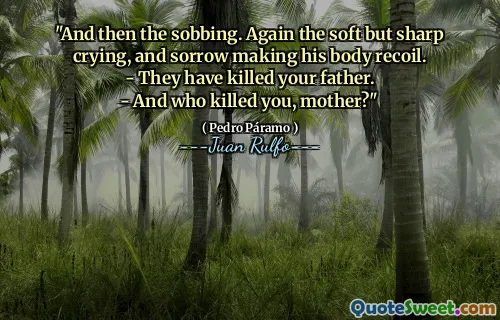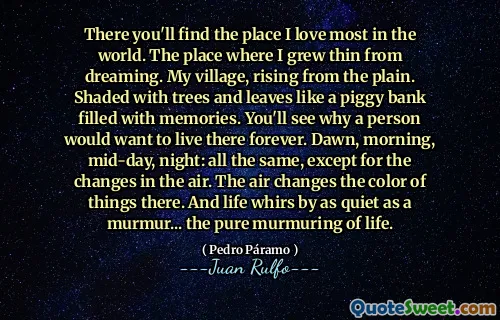"Pedro Páramo," written by Juan Rulfo, is a seminal work in Mexican literature that intertwines themes of death, memory, and the haunting nature of the past. The story follows Juan Preciado, who journeys to the desolate town of Comala to find his father, Pedro Páramo, at the behest of his dying mother. As Juan arrives, he encounters a ghostly landscape filled with memories and remnants of those who once lived there, presenting a vivid picture of loss and longing. The novel blurs the lines between life and death, showcasing how the past continues to affect the present.
The narrative structure of "Pedro Páramo" is fragmented and non-linear, employing various voices and perspectives to enhance the sense of a forgotten world. Rulfo employs rich, poetic language that captures the essence of rural Mexico and the complexities of human emotion. Through Juan’s interactions with the townspeople and the echoes of Pedro Páramo’s tyranny, readers are drawn into a realm where the boundaries of reality are indistinct, eliciting a profound sense of existential reflection.
More »
Today Birthdays
1931 -
Carlos Castaneda
1946 -
Jimmy Buffett
1908 -
Quentin Crisp
1876 -
Muhammad Ali Jinnah
1642 -
Isaac Newton
1961 -
Ingrid Betancourt
1624 -
Angelus Silesius
1887 -
Conrad Hilton
1924 -
Rod Serling
1870 -
Helena Rubinstein
1899 -
Humphrey Bogart
1890 -
Robert Ripley
1821 -
Clara Barton
1918 -
Anwar Sadat
1721 -
William Collins
1968 -
Helena Christensen
1976 -
Liz Goldwyn
1924 -
Atal Bihari Vajpayee
1950 -
Karl Rove
1959 -
Michael P. Anderson
1992 -
Rachel Keller
1971 -
Justin Trudeau
1971 -
Dido Armstrong
1904 -
Gerhard Herzberg
1583 -
Orlando Gibbons
1958 -
Christina Romer
1918 -
Ahmed Ben Bella
1949 -
Sissy Spacek
1948 -
Merry Clayton
1958 -
Ron Eglash

